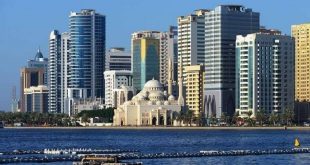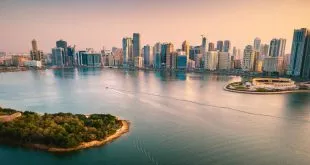Sharjah Economic Development Department (SEDD) has issued 33,149 business licenses during the first half of 2017, consistent with the number of licenses issued during the equivalent periods over the past three years. The department issued 33,192 licenses in H1 2015 and 31,889 licenses during the same period of 2014*. The SEDD statistics exclude those business licenses issued by the emirate’s growing number of free zones.
According to SEDD, 65 percent (21,709) of licenses issued during the first half of the year were commercial licenses, while the remaining 11,440 licenses issued were professional, industrial and Eitimad ‘domestic’ license categories. 30,103 of business licenses issued were renewals, with May being the most active in terms of renewal of licenses, with 20 percent (5,889) of total renewals taking place during the month.
Sharjah’s economy is supported by a diverse production base and has a wide range of initiatives in progress to increase diversification and attract knowledge-based industries. According to global credit ratings agency S&P, the real estate and business services sector accounting for 22 percent of GDP, manufacturing 16 percent, and wholesale and retail trade for 12 percent.
Sharjah has two well established free zones: Hamriyah Free Zone and Sharjah Airport Free Zone (SAIF Zone), both formed in 1995. The two zones accommodate about 13,500 companies from 157 countries representing a wide range of industries from petroleum and plastics through to food products. The zones also include advertising, marketing, printing and publishing ventures.
During the past 18 months, the government has launched three new free zones aimed at attracting knowledge-led industries: AUS Research, Technology and Innovation (RTI) Park, Sharjah Media City Free Zone (Shams) and Sharjah Publishing City (SPC). Both Shams and SPC began issuing free zone business licences earlier this year.
Despite regional economic challenges, S&P has forecast Sharjah’s real GDP growth to average 2.4 percent in 2017-2020 (about 5% on average in nominal terms). The agency expects consumption, investments, construction, and tourism to improve and consumer confidence to strengthen as oil prices have started to recover on the back of the OPEC’s (The Organization of the Petroleum Exporting Countries) agreement to cut output.
Source: SEDD, S&P
* 2016 statistic not available






